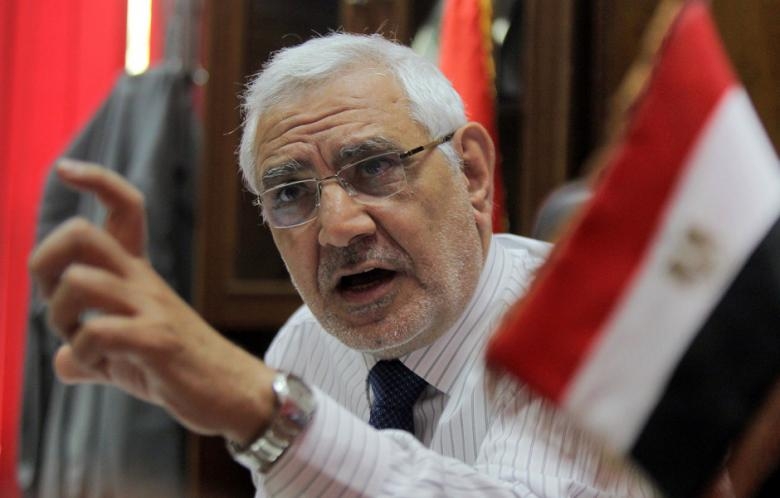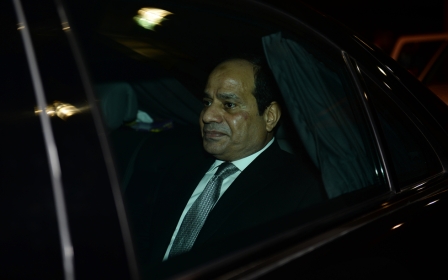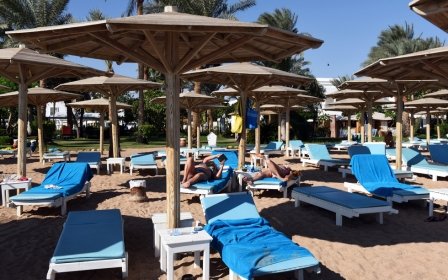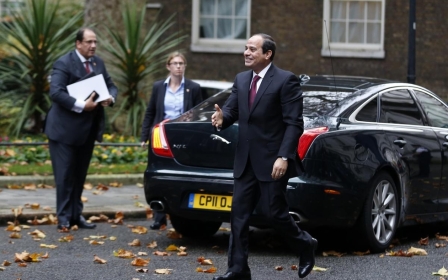Aboul-Fotouh says Egypt should hold early elections - or face chaos

A leading Egyptian opposition politician has called for early presidential elections, saying that president Abdul Fattah al-Sisi has failed to lead the country - and that the alternative to fresh elections is a coup or chaos.
In an interview on Thursday with BBC Arabic, Abdel Moneim Aboul-Fotouh, the head of the Strong Egypt party, said that Sisi has created a "republic of fear" which has failed to bring about any significant developments in Egypt.
"As for Sisi, we have had a year of his rule. There is a deterioration in the political sphere, in the economic sphere, the social sphere," Aboul-Fotouh said.
"The parliamentary elections are being fought between supporters and supporters [of the state] - there is no opposition," he said. "The alternative to early presidential elections is either a military coup against the current regime, or chaos."
But Mohamed Abbas, Aboul-Fattouh's secretary, told Middle East Eye on Friday that the former presidential candidate did not plan to run for president if early elections were called.
Aboul-Fattouh's comments come after a series of domestic and international crises centred around Egypt over the past few weeks have led to speculation among observers about whether Sisi's time in power may be coming to an end.
“Egypt, which was already unstable, is growing more unstable by the day,” Shadi Hamid, senior fellow at the Brookings Institution, told Middle East Eye last week. "It's one crisis after another and the Sisi regime has only one response: maximise state power, deny responsibility, and force the media to stay quiet.”
Aboul-Fotouh, a medical doctor by training, was once a member of the Muslim Brotherhood's Guidance Bureau before formally quitting the organisation ahead of his run for president in 2012.
This is his second call in less than six months for early presidential elections after a plea for the same in June. He also called for early elections nine months into Morsi's tenure when, he told BBC Arabic, he realised that his policies weren't going to help the country achieve the goals of the 2011 revolution.
During his interview on Thursday, which was his first in nearly two years, he suggested that he had essentially been banned from appearing on Egyptian TV.
"Broadcasters are under siege by the current regime," he said, adding that he hadn't been invited onto a show since 2013.
While he said that he didn't doubt the good intentions of Sisi - or previously of Morsi, Aboul-Fotouh said that he didn't see any positive results from the current president's leadership.
When the BBC Arabic presenter asked whether Sisi's $8bn Suez Canal extension project could be considered a success, he said, "There is no economic benefit from this bypass. What is the point of a project that costs us $4 billion and doesn't give us anything back?"
He also called for a national reconciliation project that will bring together Egyptians from across the political spectrum, including young members of the Muslim Brotherhood.
"Reconciliation needs to include everyone. Seventy-five percent of the electorate are not showing up at the polls during this parliamentary election in protest at this situation," he said, referring to last month's voter turnout for Egypt's parliamentary polls. "We need to have reconciliation with all of them."
Aboul-Fotouh also told BBC Arabic that the political climate under Sisi had been more restrictive than during the eras of Hosni Mubarak and Morsi.
"Under [president Mohamed] Morsi there wasn't a protest law," he told BBC Arabic. "Demonstrators weren't getting killed by live ammunition. There weren't 40,000 people in prison. Prisoners, including politicians, weren't dying of neglect, as has happened to some Egyptian MPs [since 2013]. The economy wasn't failing like it is now, either under Morsi or before him.
"We didn't have this polarisation as we do now. We used to go out on the streets in protest against Morsi. We used to express our opinions, as we did under the military council and even under [Field Marshal Mohamed] Tantawi. Now, only one voice is permitted," he said.
New MEE newsletter: Jerusalem Dispatch
Sign up to get the latest insights and analysis on Israel-Palestine, alongside Turkey Unpacked and other MEE newsletters
Middle East Eye delivers independent and unrivalled coverage and analysis of the Middle East, North Africa and beyond. To learn more about republishing this content and the associated fees, please fill out this form. More about MEE can be found here.




